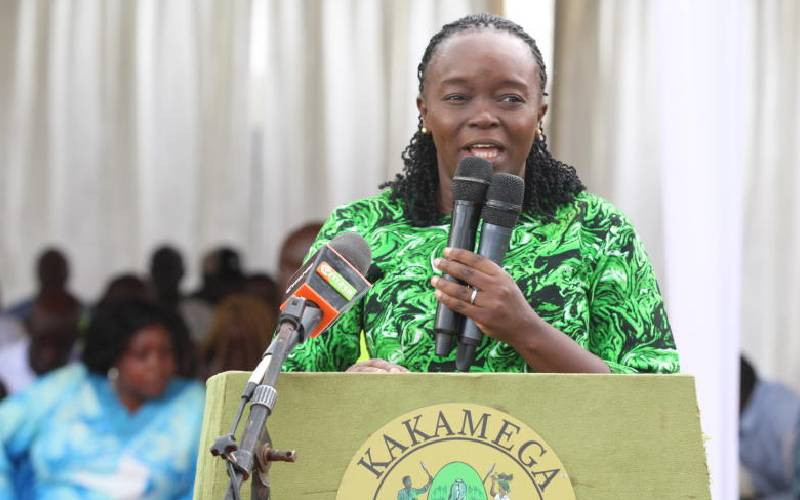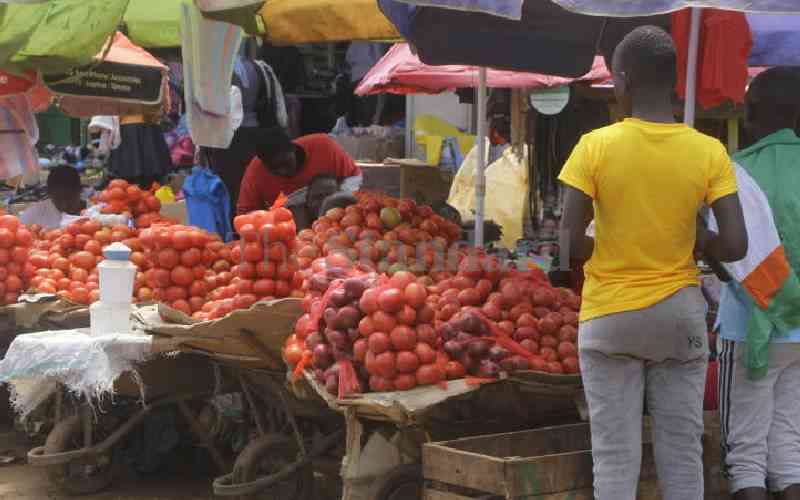
Kenya's agriculture industry is hurting from the terrible impact of recent floods, which caused significant damage to farms, crops, and cattle, as well as the tragic loss of human life. According to estimates by the Ministry of Agriculture, Livestock, Fisheries, and Cooperatives, the floods affected more than 70,000 farmers, emphasizing the urgent need for intervention to help their recovery efforts.
To make matters worse, this weather variability, combined with the effects of climate change, would further disfranchise a sector that is typically regarded as high-risk by commercial banks, reducing credit flow to the sector, which currently accounts for less than 5% of total banking debt, according to data released by the Central Bank of Kenya.
Bankers are frequently accused of taking away umbrellas offered during sunny seasons just as it begins to rain, but banks should instead deliver gumboots and help farmers gain access to sustainable financing options from the outset.
At Absa, we believe that such times necessitate banks partnering with farmers to assist them in managing crises and ensuring faster recovery; employing a comprehensive risk assessment and mitigation strategy at the outset of each financing transaction.
Depending on the level of disruption, banks can not only assist clients with the insurance claim procedure but also collaborate proactively with insurance companies to build fit-for-purpose and cheap insurance policies.
In other cases, where the client has a diverse enterprise, banks may allow the renegotiation of current facilities and examine what the current farming enterprise can provide. Given the impact of the recent floods, banks may consider issuing emergency loans or credit facilities as bridge money while insurance refunds are evaluated. This method will aid affected farmers in promptly restarting their farming operations, allowing them to recover.
Statistics from the Insurance Regulatory Authority indicate that only 5 per cent of farmers in Kenya have agricultural insurance coverage, highlighting the need for banks to facilitate greater access to insurance products to enhance resilience in the face of natural disasters like floods and other vagaries of weather exacerbated by climate change. Through their Bancassurance arms, lenders need to work closely with the insurance teams to facilitate faster payment of claims while driving insurance penetration.
Banks can also offer training programs and technical assistance to farmers in collaboration with agricultural experts and organizations. A recent survey by the Kenya National Bureau of Statistics revealed that 65 per cent of farmers lack access to relevant training and information on climate-smart agricultural practices, emphasizing the importance of capacity-building initiatives to enhance resilience. Non-governmental institutions can also collaborate with banks to ensure last-mile reach for critical agricultural information.
- Misdiagnosis, climate change to blame for pathogens' resistance to drugs
- Dozens of cholera cases reported in flood-hit Kenya
- 17 cases of diarrhoea reported in Kilifi IDP camp
- Indian naval ship docks with relief food and medicine
Keep Reading
Banks serve as pivotal financial intermediaries that can provide a range of services to empower farmers and stakeholders within the agricultural value chain. Amid the challenges posed by the floods, banks can leverage their resources and expertise to provide comprehensive support to the sector.
Emergency financial relief and supporting the multi-agency responses will go a long way to restore livelihoods and dignity to those most affected. As corporate citizens, banks can channel support to rescue operations either directly or the foundations as a true force for good. This was well executed during the COVID-19 pandemic.
Kenya's agricultural sector is the bedrock of the Kenyan economy and any shocks to the sector revibrates to the economy. The agriculture sector is usually the worst hit by the impact of climate change whether through excessive rains, changed seasons, or drought among others.
The need to feed the current generation without jeopardizing the needs of future generations will require continuous investment in climate resilience and a move from boardroom policies to actual implementations.
In the face of crisis, banks have a critical role to play in supporting the agriculture value chain and helping farmers rebuild their livelihoods. Rather than coil back on the face of heightened risk profiling, banks need to offer strategic financial assistance to promote resilience in the sector through innovative solutions, non-financial backing and real partnership.

The writer, Simon Kinuthia, is the Head of Agribusiness at Absa Bank Kenya.
 The Standard Group Plc is a multi-media organization with investments in media platforms spanning newspaper print
operations, television, radio broadcasting, digital and online services. The Standard Group is recognized as a
leading multi-media house in Kenya with a key influence in matters of national and international interest.
The Standard Group Plc is a multi-media organization with investments in media platforms spanning newspaper print
operations, television, radio broadcasting, digital and online services. The Standard Group is recognized as a
leading multi-media house in Kenya with a key influence in matters of national and international interest.











